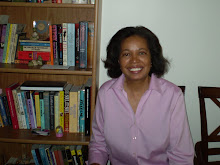
On the 80th anniversary celebration of his birth, how do you think the Rev. Dr. Martin Luther King jr. would address gay rights. Would he have addressed it? He was of course a fighter for freedom and justice. He was also a Southern Christian minister, three variables that often close the justice door (and more often heavens door) when it comes to GLBT rights and especially marriage equality. How would MLK stand on this?
Well, I believe Dr. King would stand with me and my GLBT community to get all of our rights, including the rights of marriage. I believe this because he was a man who was not bound to a stereotypical southern bible belt attitude. I believe it because his work and words as a Christian and as a pastor indicated that he understood that Christ would not regard any people as less than. That we are all threads in the human tapestry.
 Dr. King was also a civil rights leader who did not hesitate to stand up for justice no matter how unpopular the issue. So, yes I believe Dr. King would be a drum major for gay rights because, Coretta Scott King, the person who knew him best and was the most congruous with his beliefs was a strong supporter of gay rights and gay marriage.
Dr. King was also a civil rights leader who did not hesitate to stand up for justice no matter how unpopular the issue. So, yes I believe Dr. King would be a drum major for gay rights because, Coretta Scott King, the person who knew him best and was the most congruous with his beliefs was a strong supporter of gay rights and gay marriage. In 1998, just a few days before the 30th anniversary of her husband's assassination, speaking before nearly 600 people at the Chicago Palmer House Hilton Hotel, Coretta Scott King called on the civil rights community to join in the struggle against homophobia and anti-gay bias.
She noted the obvious similarities:
"Homophobia is like racism and anti-Semitism and other forms of bigotry in that it seeks to dehumanize a large group of people, to deny their humanity, their dignity and personhood."She also noted that her husband believed that all struggles for equal rights were bound together and that it was necessary to fight against bigotry in all forms, not merely the form that affected you personally:
"We are all tied together in a single garment of destiny...I can never be what I ought to be until you are allowed to be what you ought to be," she said, quoting her husband. "I've always felt that homophobic attitudes and policies were unjust and unworthy of a free society and must be opposed by all Americans who believe in democracy."
And she pointed out that many gays and lesbians had fought for black civil rights, demanding that blacks return the favor:
"Gays and lesbians stood up for civil rights in Montgomery, Selma, in Albany, Ga. and St. Augustine, Fla., and many other campaigns of the Civil Rights Movement," she said. "Many of these courageous men and women were fighting for my freedom at a time when they could find few voices for their own, and I salute their contributions."
But perhaps her most eloquent statement on the subject came in 1994, again invoking the words of her late husband in support of equal rights for all:
"For too long, our nation has tolerated the insidious form of discrimination against this group of Americans, who have worked as hard as any other group, paid their taxes like everyone else, and yet have been denied equal protection under the law...I believe that freedom and justice cannot be parceled out in pieces to suit political convenience. My husband, Martin Luther King, Jr. said, "Injustice anywhere is a threat to justice everywhere." On another occasion he said, "I have worked too long and hard against segregated public accommodations to end up segregating my moral concern. Justice is indivisible. Like Martin, I don't believe you can stand for freedom for one group of people and deny it to others."
"I appeal to everyone who believes in Martin Luther King Jr.'s dream to make room at the table of brother, and sisterhood, for lesbian and gay people." -(Reuters, March 31, 1998).
Did you know that Dr. King's longtime colleague and the organizer of the 1963 March on Washington, Bayard Rustin, was an openly gay man?


I agree with Mrs. King that her husband would stand with her for equal rights for GLBT people. Her oldest daughter the late Yolanda King was also a supporter and believer that her father would be too. In contrast, the youngest King daughter, Rev. Bernice King, who was five years old when her father was killed, is outspoken in opposition to gay rights and marriage. She does not feel her father would support this issue.
"I know deep down in my sanctified soul that he did not take a bullet for same-sex unions."
Yolanda King and Rev. Bernice King


So, here on the 80th anniversary of his birth, what do you think? Do you agree with Coretta King or Rev. Bernice King about where MLK would stand on GLBT rights and same-sex marriage?



